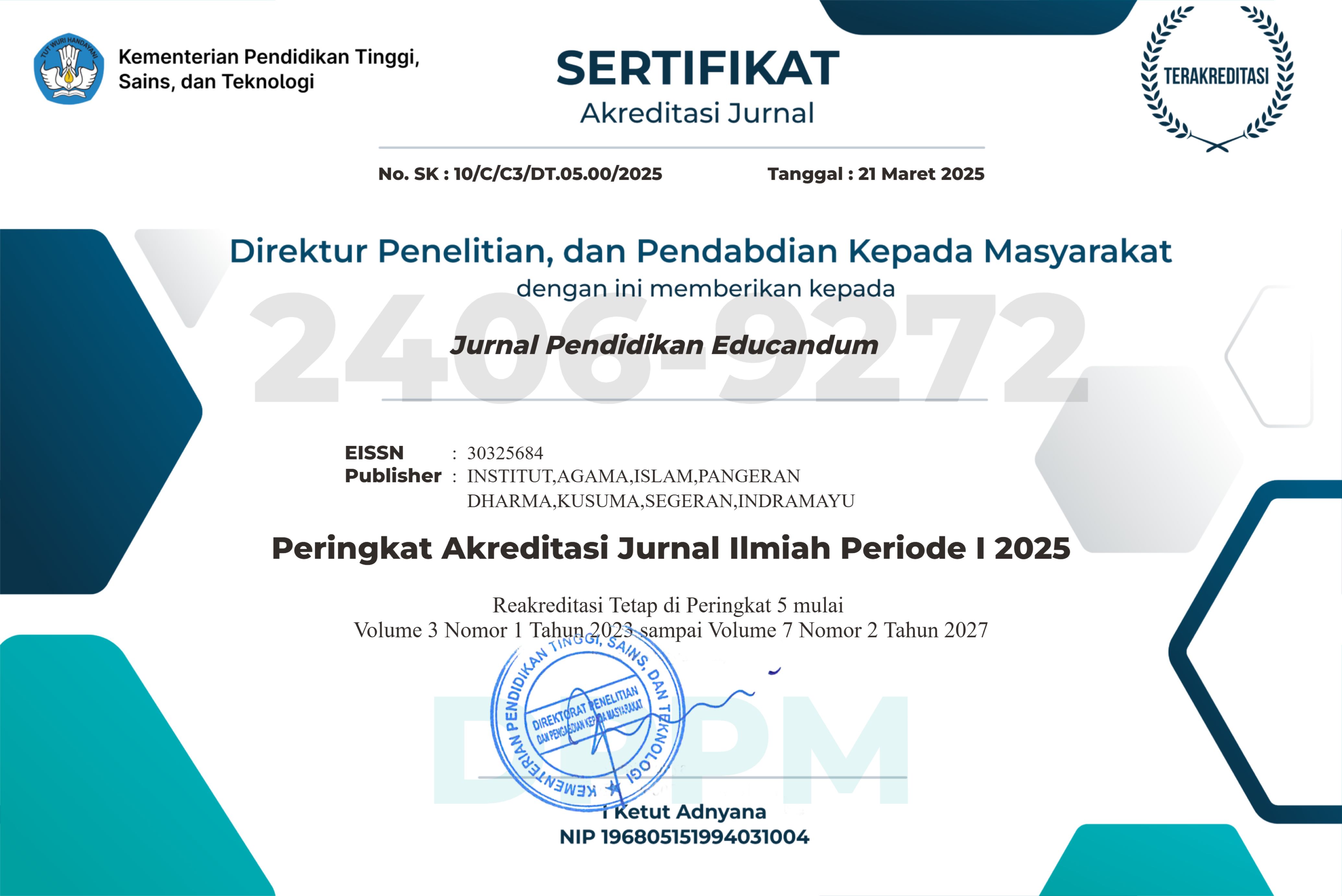Islamic Religious Education and Its Role in Shaping Students’ Morality in The Age of Society 5.0
DOI:
https://doi.org/10.55656/jpe.v5i2.504Keywords:
education, islamic religion, public schools, society 5.0Abstract
The growing concern over moral decline underscores the strategic role of Islamic Religious Education (IRE) in public schools, particularly in the context of Society 5.0, characterized by technological integration and shifting social values. This study employs a literature review approach to analyze the role of IRE in fostering students’ morality, with a focus on teacher competence, instructional methods, challenges, and strengthening strategies. The findings suggest that IRE contributes to mitigating moral decline through teachers’ exemplary conduct, technology-enhanced pedagogies, and reinforcement of Islamic values. However, challenges remain, including the pervasive influence of digital culture, limited student engagement, and teachers’ insufficient digital literacy. To address these issues, strengthening strategies such as teacher professional development, technology integration in IRE, and community collaboration are essential. The study concludes that optimizing IRE through a holistic approach is crucial for cultivating morally resilient generations in the era of Society 5.0.
Downloads
Published
How to Cite
Issue
Section
License
Copyright (c) 2025 Syaifudin Zuhri, Siti Wahyuni

This work is licensed under a Creative Commons Attribution-ShareAlike 4.0 International License.










